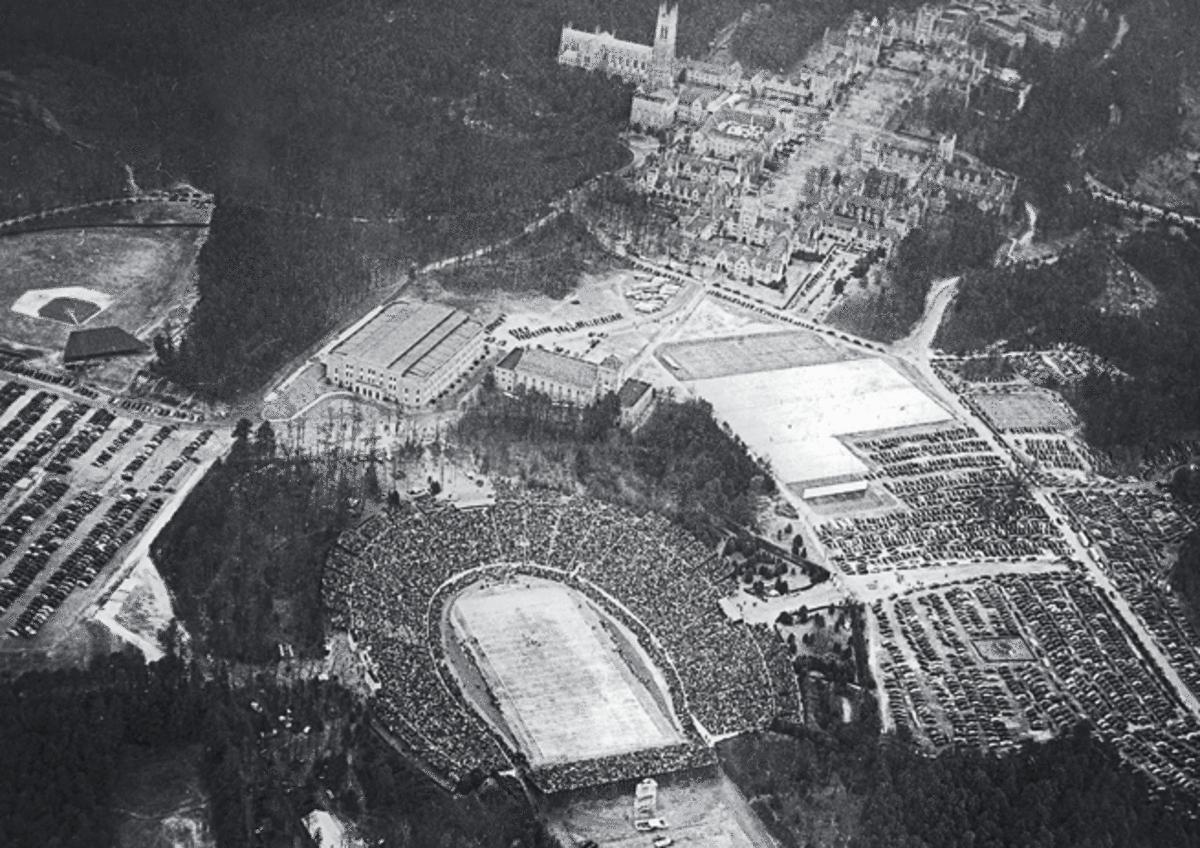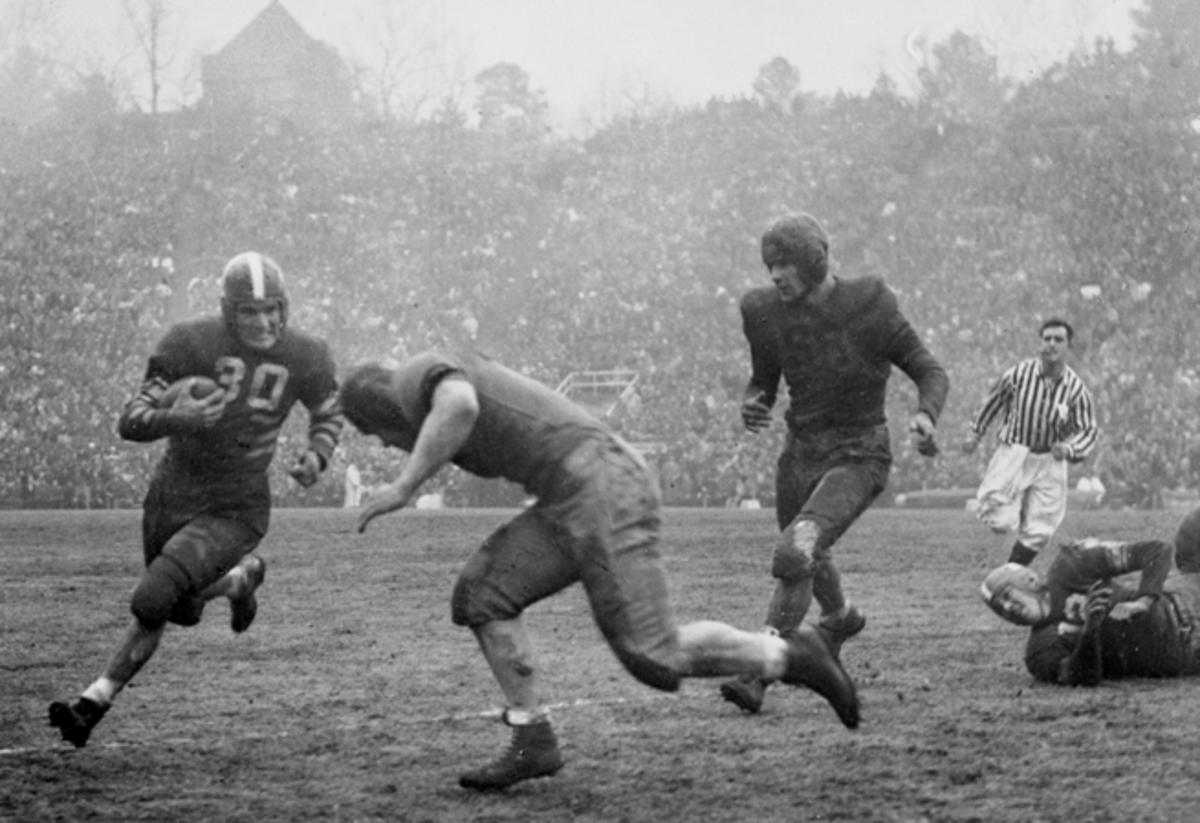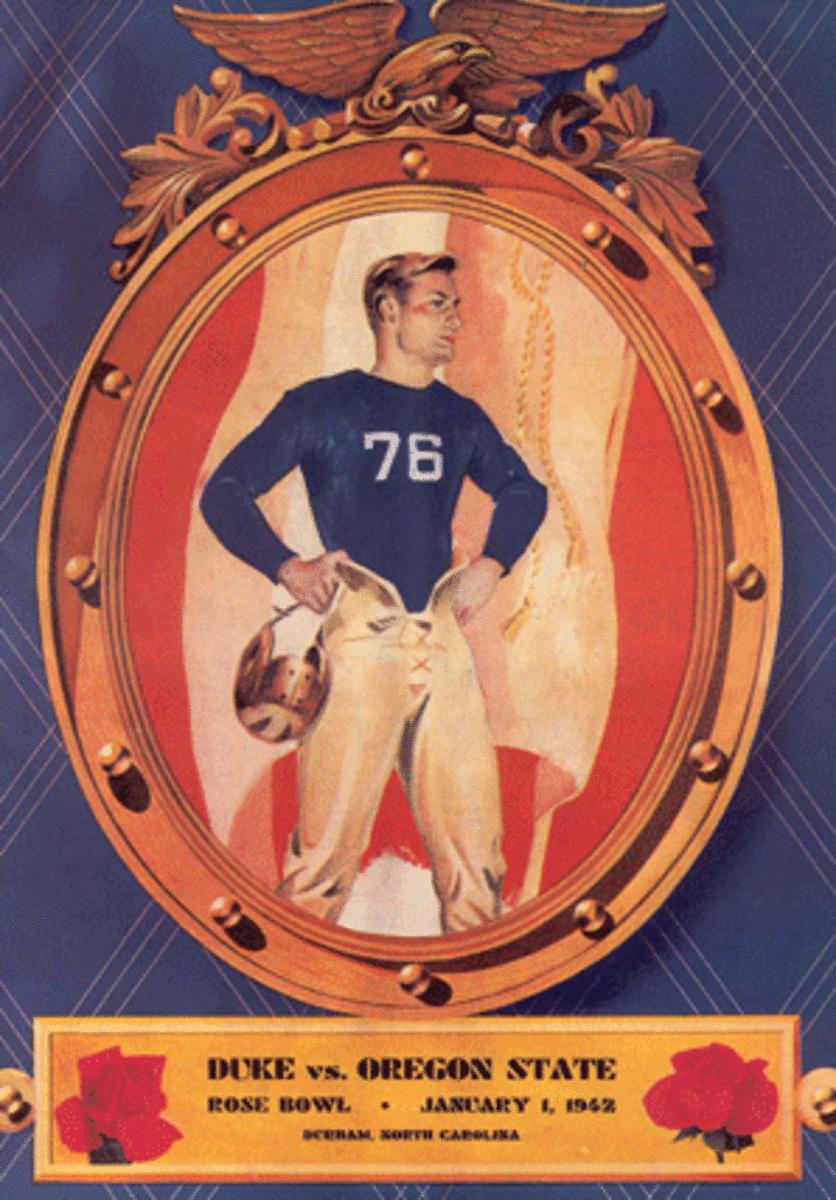War and Roses: The 1942 Rose Bowl rallied a rattled country


The weather and location were not the only reminders that this was a unique Rose Bowl. Duke officials had to receive clearance from aeronautical authorities in Washington for a plane to fly overhead for pictures, which the public-address announcer informed the crowd about beforehand lest anyone think the enemy was attacking.

Wade, who was 49, reenlisted shortly after the Rose Bowl loss. "My boys were going in, and I felt like we should stay together as a team," he told his biographer, Lewis Bowling. "We were just participating in a different battle."

Football may be a metaphor for war, but it is not war. The 1942 Rose Bowl had to be played, not because it somehow prepared the men who participated for the hardships that awaited, but because it symbolized the determination and sacrifice and camaraderie that would define the American war effort. As Jim Smith, the former Duke player who is one of the few still-living participants, put it in a postwar interview, "[The Rose Bowl] gave people something to hang on to: We're still a nation, we're still here, we're still going about things. That's what sports can do."
